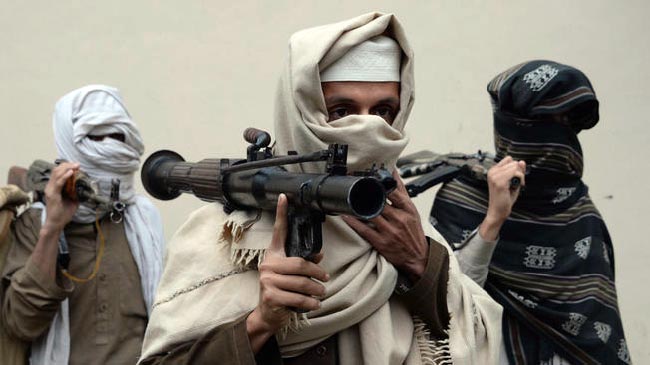Peace talk has changed into a tortuous process and Afghanistan made great sacrifices in this regard without a clear outlook. Afghan officials urged the Taliban elements, for more than a decade, to come to negotiating table and established the High Peace Council (HPC) in 2010 to pave the way for amiable talk. However, the Taliban have been refusing the peace offering and continue their acts of terror without mitigation. They have intensified their attacks in recent months and inflicted heavy casualties upon the nation, mainly in 2015.
Holding the fourth round of Quadrilateral Coordination Group (QCG) meeting in Kabul on February 23, without the presence of Taliban representative, the four-nation group released that the direct talk between the Taliban and Afghan government will take place in the first week of March. Pakistan offered to host the first round of direct talks following the conclusion of QCG meeting.
“The QCG member states invite all Taliban and other groups to participate through their authorized representatives in the first round of direct peace talks with the Afghan government expected to take place by the first week of March 2016,” a joint statement by QCG said. The statement further added that the fifth round of the QCG meeting will take place in Islamabad immediately after the first round of direct peace talks.
However, the Qatar-based Taliban representatives persist on preconditions for joining the peace process, which was announced at the Pugwash research center in Doha on January 23. The Taliban preconditions include complete withdrawal of the foreign forces from Afghanistan, official recognition of Taliban’s political office in Qatar, removal of Taliban from United Nations terrorist blacklist, halt to the arrest and elimination of Taliban, and release of the Taliban inmates from prisons.
On June 18, 2013, Taliban opened an office as the first move towards peace deal after 12-years of fighting, but it enraged Hamid Karzai by styling itself as an unofficial embassy for a government-in-exile. Mr. Karzai raised his concerns about the peace process not being Afghan-led. He suspended plans for Afghan officials to meet the Taliban in Qatar. His concerns were so great that US Secretary of State John Kerry had to promise that the Taliban flag and their sign reading “The Islamic Emirate of Afghanistan” would be removed. But the flag remained, albeit on a shorter flagpole. On the other hand, however, Karzai’s administration accepted the last preconditions of the Taliban namely releasing their prisoners, who were arrested in battlefield by Afghan soldiers, and a large number of them were freed from Afghan prisons – this led to tension between Kabul and Washington. Despite the Taliban’s insurgencies, Karzai called them “discontented brothers” and showed great patience and generosity towards them. As a result, when Molavi Abdul Raqib, a former Taliban’s refugee minister and one of the members of Dubai peace talk, was shot dead by unknown gunmen in the Pakistani city of Peshawar, Afghan military helicopter transferred his body to Takhar province under Karzai’s order. In addition, President Karzai invited Raqib’s party Tahreek-e-Islami Taliban to return to Afghanistan and urged other Taliban negotiators to go to safe places. Similarly, he denied signing the security pact despite the approval of Loya Jirga (National Grand Council) and pressure from the public, merely to convince the Taliban to hold Afghan-led peace talk. But none of his acts gave the desired result.
Moreover, the US-led “war on terror” did not come to fruition either. Ultimately, their combat mission ended and the bulk of the American troops withdrew from the country. So, the US also joined the peace process and seeks to bring the Taliban to the negotiating table.
But Russia denied to participate the four-nation meeting and called it “useless”. The Russian Ministry of Foreign Affairs said that they did “not see any practical sense in it.
Russia does not want to be just a statistician.” Following the Tuesday meeting, Russia has urged the Taliban to start direct talks with the Afghanistan government and hoped for an imminent negotiation. “We are urging the Taliban to do this and we hope that they will start as soon as possible to prevent the beginning of a new ‘combat season’,” Zamir Kabulov is cited as saying.
Since the Taliban fighters perpetrated war crime and violated the humanitarian law frequently, the prisoners have to be prosecuted fairly. Their aforementioned preconditions are against the Afghanistan’s Constitution and international law. It is hoped that the four-nation group, especially Pakistan, put pressure on the Taliban rather than yielding to their preconditions, which bear no legal basis.
Seemingly, breaking the stalemate of peace talk is really hard. As a result, if Afghan government accepts the preconditions, the law will be violated but if the government resists against them, the Taliban will not hold negotiation. After all, there is a mistrust between the Taliban and the government, it emerged when the Taliban intensified their inroads, assassinated the ex-head of the HPC Professor Burhanudding Rabbani under the term of peace talk. Hence, in case of giving positive answer to the preconditions – which are not acceptable at all – will the Taliban give up violence and bloodshed? There is still a sense of doubt and the government has to act more cautiously than ever before. As they did not change their aggressive attitude towards Afghanistan despite Karzai’s generous acts, they will continue militancy relentlessly. One will conclude that the deadlock will continue or bringing the Taliban to negotiating table leads to a pyrrhic victory.
Home » Opinion » Peace Talk – A Continuous Deadlock or Pyrrhic Victory
Peace Talk – A Continuous Deadlock or Pyrrhic Victory
| Hujjatullah Zia

